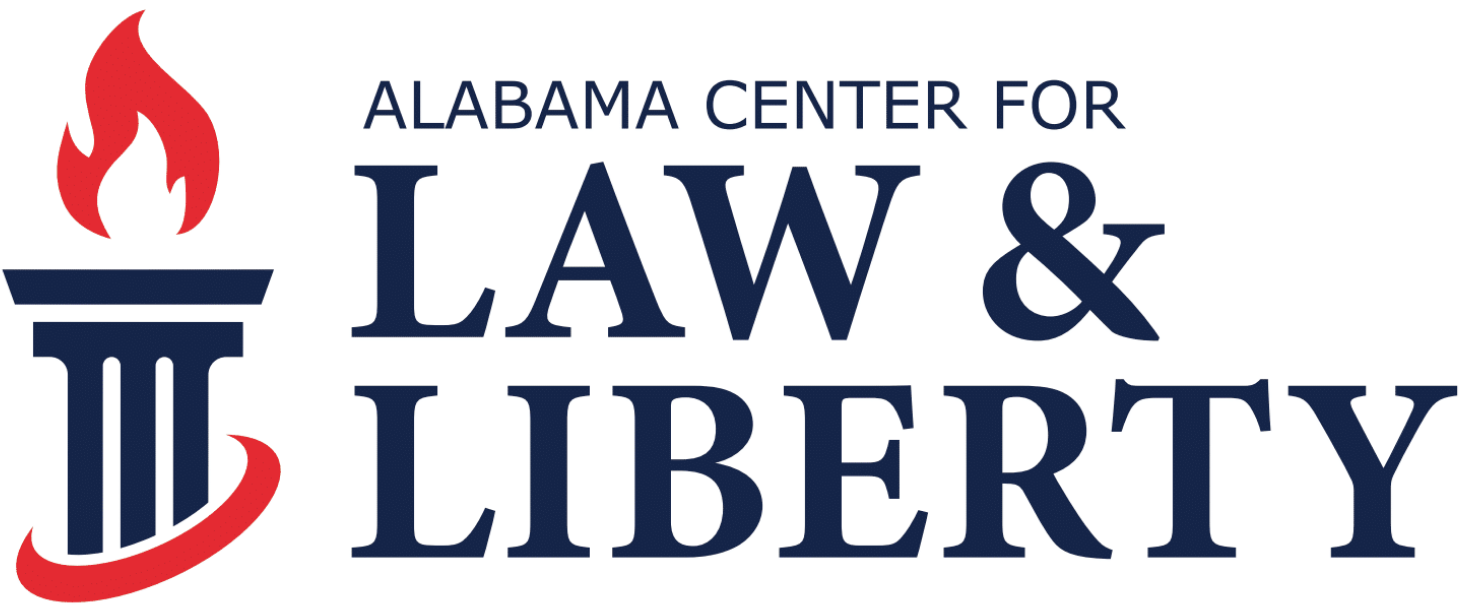Reproductive Health Servs.
v.
Bailey
ACLL Role: Amicus
Case Start Date: October 1, 2014
Deciding Court: U.S. Court of Appeals for the 11th Circuit
Original Court: U.S. District Court for the Middle District of Alabama
Practice Area(s): Limited Government
ACLL Role:
Case Start Date:
Deciding Court:
Original Court:
Practice Area(s):
Amicus
October 1, 2014
U.S. Court of Appeals for the 11th Circuit
U.S. District Court for the Middle District of Alabama
Strong Families, Limited Government
CASE SNAPSHOT
In 2014, an abortion provider in Montgomery sued the State to enjoin an Alabama law that, among other things, guaranteed that unborn children had a lawyer to represent them in judicial proceedings where a minor was seeking an abortion. The district court declared this part of the law unconstitutional, and a panel of the U.S. Court of Appeals for the Eleventh Circuit affirmed. The State asked the entire Eleventh Circuit to rehear the case, and ACLL filed an amicus brief in its support, arguing that giving the baby a lawyer was not only permissible under Roe v. Wade and its progeny but also that doing so was an essential step towards recognizing the personhood of the unborn.
STATUS
ACLL filed a friend-of-the-court brief at the Eleventh Court on August 2, 2021.
FOR THE MEDIA

CASE SUMMARY
Background
In 1973, the United States Supreme Court invented a right to abortion in Roe v. Wade, which has led to the deaths of over 60 million innocent people since. As part of Roe’s dark aftermath, the Supreme Court wrestled with the question of whether a minor who becomes pregnant and wants an abortion needs to get her parents’ permission first. The Supreme Court answered that question yes, but it also held that if the parents do not consent, then the child needs to be able to ask for a judge’s permission instead. This is called a “judicial bypass proceeding.”
Under compulsion, the State of Alabama passed a law that governed judicial bypass proceedings, but it tried to provide as much protection for the unborn child as possible. One of the features of Alabama’s law is that the unborn child gets a lawyer, called a guardian ad litem. Thus, the child has a lawyer to speak for him. To ACLL’s knowledge, Alabama is the only state in the Union to have lawyers appointed for unborn children who are facing the possibility of being aborted.
Case History
On October 1, 2021, Reproductive Health Services, which is the abortion clinic in Montgomery, and its owner June Ayers sued over the law, seeking to have it declared unconstitutional. The U.S. District Court for the Middle District of Alabama struck it down, and the State appealed. After waiting almost four years, a panel of the U.S. Court of Appeals for the Eleventh Circuit affirmed. In addition to holding that it was unconstitutional for the State to appoint a lawyer to represent an unborn child, it also held that state judges were bound by the decisions of the lower federal courts.
The State moved for an en banc rehearing, where every active judge of the Eleventh Circuit gets to rehear the case instead of just a three-judge panel. At that point, ACLL filed its amicus brief in support of the State.
Procedural Due Process and the Personhood of the Unborn
While framed as a case about guardians ad litem, there are two fundamental problems with this case lying at its roots. First, unborn children are people, made in the image of God and possessing the same right to life that every other person possesses. Second, the Constitution itself does not protect a right to abortion. Instead, in Roe, the Supreme Court invented a right to murder unborn children and rammed it down the country’s throat.
What the Constitution actually says is: “No State shall … deprive any person of life, liberty, or property, without due process of law.” U.S. Const., amend. XIV, § 1. Taken at its plain meaning, the Constitution provides that before the State takes away a person’s life, liberty, or property, it must afford that person due process of law. At a minimum, that means that the government must provide the person with notice of the charges against him and give him an opportunity to be heard before it takes the proposed action. Thus, by appointing a guardian ad litem for the baby, Alabama was actually following the Constitution. It afforded every person in Roe’s crosshairs an opportunity to make his defense of his life, which is exactly what fidelity to the Constitution requires. Thus, not only was defending this law relevant to upholding the Constitution, but it was also relevant to demonstrating that unborn children are people, and therefore a “right” to abortion should not exist at all.
Moreover, as bad as it was, Roe v. Wade (and Planned Parenthood v. Casey, which made some adjustments to Roe’s framework but kept its core) still permitted the states to do some things to protect the unborn. In Casey, for instance, the Court held that a state may require a woman to get an ultrasound before she aborts her child. We argued that the same kind of logic applied here, reasoning that affording the baby a lawyer was permissible in the same way as requiring an ultrasound. Thus, we gave the Eleventh Circuit a way to uphold the law without having to defy the Supreme Court. (At the time of this posting, ACLL has also filed an amicus brief with the U.S. Supreme Court in Dobbs v. Jackson Women’s Health Org., urging it to overrule Roe and its progeny once and for all.)
Federal and State Courts
In addition to the issue of human life, another major issue was present in this case. Despite the fact that federal courts have jurisdiction to enjoin the unconstitutional actions of state actors (such as a Governor, Attorney General, and the like), the U.S. Supreme Court has recognized that the decisions of the lower federal courts are not binding on state courts. The reasoning is that the Constitution creates a parallelism but not a paramountcy between the two court systems. If there is any conflict between the two, then the U.S. Supreme Court alone has the power to resolve the dispute.
Despite this well-settled precedent, the Eleventh Circuit’s panel held that Alabama state courts are bound by the Eleventh Circuit’s interpretation of the United States Constitution. Not only has the United States Supreme Court rejected this proposition, but so has the Alabama Supreme Court, and even the Eleventh Circuit itself! We quickly took the opportunity to remind the full court that the lower federal courts have no business dictating how the state courts read the Constitution.
Importance to Strong Families and Limited Government
Life is the gift of God granted to every person, born and unborn. Neither families nor society can survive if the inalienable right to life is not given the protection it deserves. Moreover, an important feature of federalism is the right of state courts to interpret the Constitution for themselves instead of giving unelected lower federal judges the ability to bind their interpretation of the Supreme Law of the Land.
Alabama Center for Law & Liberty 2213 Morris Ave, Floor 1 Birmingham, AL 35203 256-530-0519
The Alabama Center for Law and Liberty is Christian non-profit law firm.
©Alabama Center for Law & Liberty. All rights reserved.
